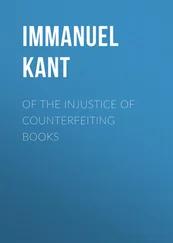3. All relations of thought in judgements are those (a) of the predicate to the subject; (b) of the principle to its consequence; (c) of the divided cognition and all the members of the division to each other. In the first of these three classes, we consider only two conceptions; in the second, two judgements; in the third, several judgements in relation to each other. The hypothetical proposition, “If perfect justice exists, the obstinately wicked are punished,” contains properly the relation to each other of two propositions, namely, “Perfect justice exists,” and “The obstinately wicked are punished.” Whether these propositions are in themselves true is a question not here decided. Nothing is cogitated by means of this judgement except a certain consequence. Finally, the disjunctive judgement contains a relation of two or more propositions to each other — a relation not of consequence, but of logical opposition, in so far as the sphere of the one proposition excludes that of the other. But it contains at the same time a relation of community, in so far as all the propositions taken together fill up the sphere of the cognition. The disjunctive judgement contains, therefore, the relation of the parts of the whole sphere of a cognition, since the sphere of each part is a complemental part of the sphere of the other, each contributing to form the sum total of the divided cognition. Take, for example, the proposition, “The world exists either through blind chance, or through internal necessity, or through an external cause.” Each of these propositions embraces a part of the sphere of our possible cognition as to the existence of a world; all of them taken together, the whole sphere. To take the cognition out of one of these spheres, is equivalent to placing it in one of the others; and, on the other hand, to place it in one sphere is equivalent to taking it out of the rest. There is, therefore, in a disjunctive judgement a certain community of cognitions, which consists in this, that they mutually exclude each other, yet thereby determine, as a whole, the true cognition, inasmuch as, taken together, they make up the complete content of a particular given cognition. And this is all that I find necessary, for the sake of what follows, to remark in this place.
4. The modality of judgements is a quite peculiar function, with this distinguishing characteristic, that it contributes nothing to the content of a judgement (for besides quantity, quality, and relation, there is nothing more that constitutes the content of a judgement), but concerns itself only with the value of the copula in relation to thought in general. Problematical judgements are those in which the affirmation or negation is accepted as merely possible (ad libitum). In the assertorical, we regard the proposition as real (true); in the apodeictical, we look on it as necessary. 15 Thus the two judgements (antecedens et consequens), the relation of which constitutes a hypothetical judgement, likewise those (the members of the division) in whose reciprocity the disjunctive consists, are only problematical. In the example above given the proposition, “There exists perfect justice,” is not stated assertorically, but as an ad libitum judgement, which someone may choose to adopt, and the consequence alone is assertorical. Hence such judgements may be obviously false, and yet, taken problematically, be conditions of our cognition of the truth. Thus the proposition, “The world exists only by blind chance,” is in the disjunctive judgement of problematical import only: that is to say, one may accept it for the moment, and it helps us (like the indication of the wrong road among all the roads that one can take) to find out the true proposition. The problematical proposition is, therefore, that which expresses only logical possibility (which is not objective); that is, it expresses a free choice to admit the validity of such a proposition — a merely arbitrary reception of it into the understanding. The assertorical speaks of logical reality or truth; as, for example, in a hypothetical syllogism, the antecedens presents itself in a problematical form in the major, in an assertorical form in the minor, and it shows that the proposition is in harmony with the laws of the understanding. The apodeictical proposition cogitates the assertorical as determined by these very laws of the understanding, consequently as affirming a priori , and in this manner it expresses logical necessity. Now because all is here gradually incorporated with the understanding — inasmuch as in the first place we judge problematically; then accept assertorically our judgement as true; lastly, affirm it as inseparably united with the understanding, that is, as necessary and apodeictical — we may safely reckon these three functions of modality as so many momenta of thought.
15 Just as if thought were in the first instance a function of the understanding; in the second, of judgement; in the third, of reason. A remark which will be explained in the sequel.
Section III. Of the Pure Conceptions of the Understanding, or Categories. §§ 6
Table of Contents
General logic, as has been repeatedly said, makes abstraction of all content of cognition, and expects to receive representations from some other quarter, in order, by means of analysis, to convert them into conceptions. On the contrary, transcendental logic has lying before it the manifold content of a priori sensibility, which transcendental aesthetic presents to it in order to give matter to the pure conceptions of the understanding, without which transcendental logic would have no content, and be therefore utterly void. Now space and time contain an infinite diversity of determinations of pure a priori intuition, but are nevertheless the condition of the mind’s receptivity, under which alone it can obtain representations of objects, and which, consequently, must always affect the conception of these objects. But the spontaneity of thought requires that this diversity be examined after a certain manner, received into the mind, and connected, in order afterwards to form a cognition out of it. This Process I call synthesis.
By the word synthesis, in its most general signification, I understand the process of joining different representations to each other and of comprehending their diversity in one cognition. This synthesis is pure when the diversity is not given empirically but a priori (as that in space and time). Our representations must be given previously to any analysis of them; and no conceptions can arise, quoad their content, analytically. But the synthesis of a diversity (be it given a priori or empirically) is the first requisite for the production of a cognition, which in its beginning, indeed, may be crude and confused, and therefore in need of analysis — still, synthesis is that by which alone the elements of our cognitions are collected and united into a certain content, consequently it is the first thing on which we must fix our attention, if we wish to investigate the origin of our knowledge.
Synthesis, generally speaking, is, as we shall afterwards see, the mere operation of the imagination — a blind but indispensable function of the soul, without which we should have no cognition whatever, but of the working of which we are seldom even conscious. But to reduce this synthesis to conceptions is a function of the understanding, by means of which we attain to cognition, in the proper meaning of the term.
Pure synthesis, represented generally, gives us the pure conception of the understanding. But by this pure synthesis, I mean that which rests upon a basis of a priori synthetical unity. Thus, our numeration (and this is more observable in large numbers) is a synthesis according to conceptions, because it takes place according to a common basis of unity (for example, the decade). By means of this conception, therefore, the unity in the synthesis of the manifold becomes necessary.
Читать дальше












